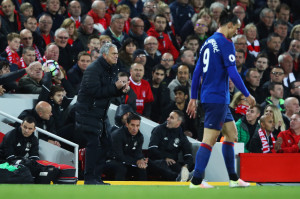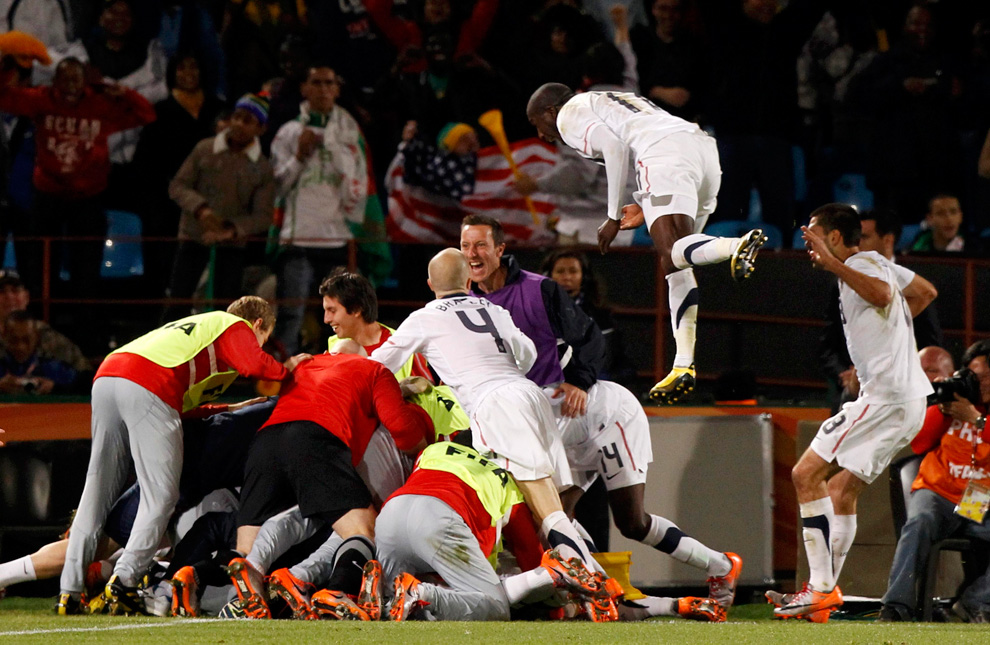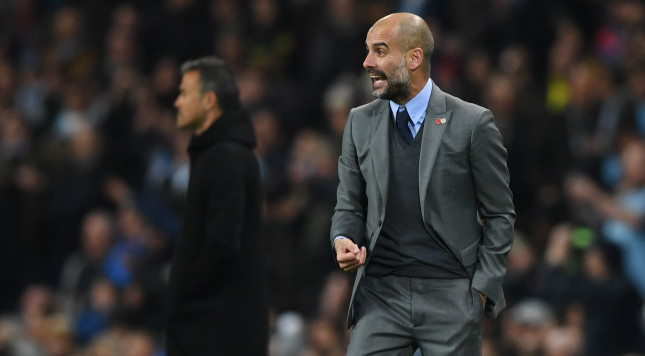While tactics and playing styles are often discussed as important reasons for specific teams winning or not winning, one factor that has been pushed to the wayside of late is the concept of the fear factor. This is possibly because it is something of an intangible, the fear factor is nonetheless a very real, very important factor for why teams are able to put together a run of good form.

MANCHESTER, ENGLAND – SEPTEMBER 14: Sergio Aguero of Manchester City celebrates scoring his third during the UEFA Champions League match between Manchester City FC and VfL Borussia Moenchengladbach at Etihad Stadium on September 14, 2016 in Manchester, England. (Photo by Richard Heathcote/Getty Images)
The benefits of the fear factor are incredible when you know what to look for. For a recent example, let’s look at Manchester City at the beginning of this season. Their first 10 games in all competitions were wins with a goal differential of +24 (30 goals scored, 6 goals allowed). That’s an incredible record for any team. Think about what it must have felt like for teams that were playing Manchester City in that run. Right before the game, sitting in the locker room thinking about how you were about to come up against Sergio Aguero and Kevin de Bruyne, or about how they just beat a team 4-0 and before that 4-0. Psychologically, this can reek havoc on a team, and for good reason. In tight games of soccer, psychology plays a big part of many aspects of the game and any slip up mentally can cost your team three points. With that in mind, having that fear factor already gives your team the psychological win on the pitch.
When you look at game management, the fear factor also plays a role in tactics. If your team is on a good run playing a specific way, the opposing manager will more than likely change up how they play to react to your game. While this can result in a tactical masterclass occasionally, more often than not, the decision is to react to the fear factor and play a more defensive game. A more defensive game means the team is less likely to score on you, which in turn makes it more likely that you’ll get the result you want. It’s a vicious circle for the smaller team and a pleasant one for the team with fear factor.

LIVERPOOL, ENGLAND – OCTOBER 17: Jose Mourinho, Manager of Manchester United gives instructions during the Premier League match between Liverpool and Manchester United at Anfield on October 17, 2016 in Liverpool, England. (Photo by Clive Brunskill/Getty Images)
To see an example of when switching the style has worked, look at the Liverpool-Manchester United game this season. Jose Mourinho chose to attack hard and early before retreating into an impenetrable defensive shape to react to the fear factor created by Liverpool’s attack. In this case, it worked for them. It didn’t work for them when they played Manchester City, though. In the first half, Mourinho opted to go full-on-defensive first and United suffered for it. It was really only in the second half, when they played more attacking, that United looked like they would equalize. Again, this is the effect the fear factor can have on even the biggest of games.
So what happens when the fear factor is lost? Well, look at Manchester United in recent seasons. All of those psychological benefits I mentioned earlier are gone. Teams go into the game believing that they can beat you, and that they can do it playing their game. This is a massive motivation boost for what would be considered the smaller team, because this is their opportunity to beat ‘one of the big boys.’ Suddenly, smaller teams are attacking, raising the chances of goals. That vicious circle from earlier is suddenly looking a little kinder to the underdog. The more results that go like this, the less of a fear factor your team has. The longer your team lacks a fear factor, the harder it is to get it back.

LONDON, ENGLAND – MARCH 04: Alexis Sanchez of Arsenal (17) celebrates with Olivier Giroud as he scores their second goal during the Barclays Premier League match between Queens Park Rangers and Arsenal at Loftus Road on March 4, 2015 in London, England. (Photo by Julian Finney/Getty Images)
This problem can take years to fix. Arsenal are currently in incredible form, but you won’t hear so much about it. Teams still go into games against Arsenal lacking a genuine fear of what Arsenal can do against them because, even though Arsenal have incredible players and a great manager, they have been an inconsistent team for years and are prone to mental collapses at random times. The sense that if things can just click for you, you can beat Arsenal is very real despite them currently being tied on points at the top of the table.
After all of this, if you want another example of what can happen when the fear factor breaks down, look at last season. Nothing shows what can happen when teams play without fear than the crazy season that was 2015/16. It is often believed that anyone can beat anyone in the Premier League, but last season was the first where everyone was legitimately vulnerable in any given game. That may sound good to fans of traditionally smaller teams, but for fans of ‘big teams,’ you’ll be hoping to reclaim some fear factor ASAP, before it’s gone.






